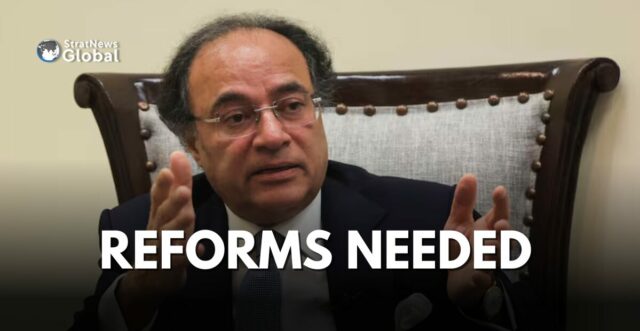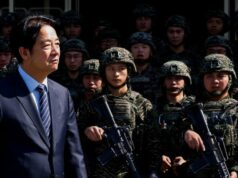Pakistan’s Finance Minister Muhammad Aurangzeb arrived in Beijing on Thursday to discuss power sector structural reforms recommended by the International Monetary Fund (IMF). Two government sources confirmed the visit, highlighting the importance of these discussions for Pakistan’s economic stability.
Key Meetings and Delegation
Minister Aurangzeb held a meeting with his Chinese counterpart in Beijing. He is accompanied by Power Minister Awais Leghari, leading a delegation to discuss various proposals with the Chinese government, including the reprofiling of nearly $15 billion in energy sector debt.
Long Standing Bilateral Relations
Pakistan and China share a long history of close diplomatic and economic ties. China has previously helped Pakistan meet its external financing needs through loan rollovers and disbursements. This cooperation is crucial for Pakistan, especially in light of its current economic challenges.
Power Sector Reforms
The IMF recently approved a $7 billion bailout for Pakistan, emphasizing the need for structural reforms in the power sector. These reforms aim to address issues such as high rates of power theft and distribution losses, which contribute to accumulating debt within the energy production chain.
Circular Debt Reduction Efforts
One of the main goals of the reforms is to reduce “circular debt” by 100 billion Pakistani rupees ($360 million) annually. Circular debt refers to the public liabilities that accumulate in the power sector due to subsidies and unpaid bills. Addressing this issue is critical for improving the financial health of Pakistan’s power sector.
Impact of Previous IMF Bailouts
Previous IMF bailouts have impacted poor and middle-class households in Pakistan, particularly through raised power tariffs. These measures were part of a funding programme that ended in April, aimed at stabilising Pakistan’s economy but also placing a financial burden on consumers.
China has invested over $20 billion in planned energy projects in Pakistan. These investments are part of the broader China-Pakistan Economic Corridor (CPEC) initiative, which aims to enhance infrastructure and energy development in Pakistan.
The discussions between Pakistani and Chinese officials in Beijing are pivotal for addressing the structural issues in Pakistan’s power sector. Successful negotiations could lead to significant financial relief and improvements in energy infrastructure, ultimately benefiting the country’s economy and its citizens.
With Inputs from Reuters
Research Associate at StratNewsGlobal, A keen observer of #China and Foreign Affairs. Writer, Weibo Trends, Analyst.
Twitter: @resham_sng





